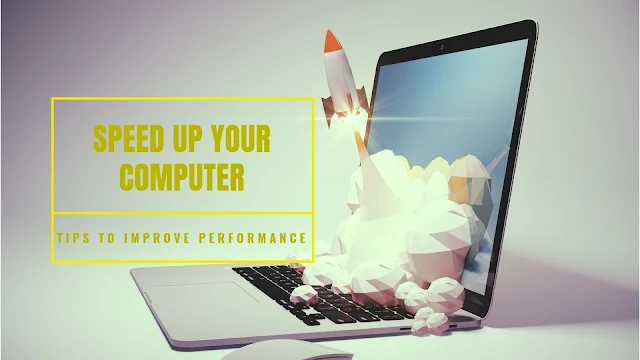A slow computer can be frustrating, especially when you’re trying to get work done or enjoy some leisure time online. There are many reasons why your computer might be running slowly, ranging from software issues to hardware limitations. Let’s explore some common causes and how you can address them to restore your computer’s performance.
1. Too Many Programs Running at Once
One of the most common reasons for a slow computer is having too many programs running simultaneously. Each open program consumes system resources, such as CPU, RAM, and storage, which can lead to performance degradation.
How to Fix:
- Close Unnecessary Programs: Use the Task Manager (Ctrl + Shift + Esc) to close programs you’re not actively using.
- Limit Startup Programs: Go to Task Manager > Startup tab, and disable unnecessary programs from starting automatically with Windows.
2. Insufficient RAM
RAM (Random Access Memory) is crucial for your computer’s performance. If your computer has limited RAM, it can struggle to handle multiple tasks, leading to slowdowns.
How to Fix:
- Upgrade Your RAM: If possible, consider upgrading your RAM to improve performance, especially if you use memory-intensive applications.
- Manage Virtual Memory: Adjust the virtual memory settings in System Properties > Advanced system settings > Performance > Settings > Advanced > Virtual memory.
3. Hard Drive Issues
Over time, your hard drive can become cluttered with temporary files, or it might start to fail, both of which can slow down your computer.
How to Fix:
- Run Disk Cleanup: Use Windows’ built-in Disk Cleanup tool to remove temporary files and free up space.
- Check Hard Drive Health: Use a tool like CHKDSK (Check Disk) to scan and fix errors on your hard drive. You can run it from the Command Prompt with the command
chkdsk /f /r.
4. Fragmented Hard Drive
If you’re using a traditional hard disk drive (HDD), file fragmentation can cause slow read and write speeds, resulting in a sluggish computer.
How to Fix:
- Defragment Your Hard Drive: Use the built-in defragmentation tool in Windows. Go to Settings > System > Storage > Optimize Drives and run the tool on your HDD.
5. Malware or Viruses
Malware, viruses, and other malicious software can significantly slow down your computer by running unwanted background processes, using system resources, and even causing hardware damage.
How to Fix:
- Run a Full System Scan: Use reputable antivirus software to scan your system for malware. Quarantine and remove any threats that are found.
- Keep Your Antivirus Updated: Regularly update your antivirus software to protect against the latest threats.
6. Outdated Operating System or Drivers
Running an outdated operating system or drivers can lead to compatibility issues and performance bottlenecks.
How to Fix:
- Update Windows: Go to Settings > Update & Security > Windows Update and check for updates.
- Update Drivers: Use Windows Device Manager to check for driver updates, or visit the manufacturer’s website for the latest drivers.
7. Too Many Browser Tabs Open
Having multiple browser tabs open at once can consume a significant amount of RAM, especially if those tabs are running resource-intensive websites or applications.
How to Fix:
- Close Unused Tabs: Regularly close tabs you’re no longer using.
- Use a Tab Manager: Consider using a browser extension that helps manage and suspend inactive tabs to free up system resources.
8. Overheating
If your computer is overheating, it can automatically slow down to prevent damage. Dust buildup, poor ventilation, and malfunctioning fans can all contribute to overheating.
How to Fix:
- Clean Your Computer: Regularly clean the inside of your computer to remove dust from fans, vents, and other components.
- Improve Ventilation: Ensure your computer is in a well-ventilated area and that its fans are working properly.
9. Background Processes
Background processes, such as automatic updates, backups, or syncing services, can consume resources and slow down your computer.
How to Fix:
- Manage Background Processes: Use Task Manager to identify and disable unnecessary background processes.
- Schedule Updates: Configure your system to perform updates and backups at times when you’re not using your computer.
10. Hardware Aging or Failing
As your computer ages, its components can wear out or become outdated, leading to slower performance.
How to Fix:
- Consider Upgrading Hardware: If your computer is old, consider upgrading key components like the hard drive, RAM, or even the CPU.
- Evaluate for Replacement: If upgrades aren’t feasible, it might be time to consider replacing your computer with a newer model.
Conclusion
A slow computer can be caused by various factors, from software-related issues to hardware limitations. By identifying the root cause, you can take targeted steps to improve your computer’s performance. Whether it’s closing unnecessary programs, upgrading hardware, or performing regular maintenance, these actions can help keep your computer running smoothly.

Comments
Post a Comment